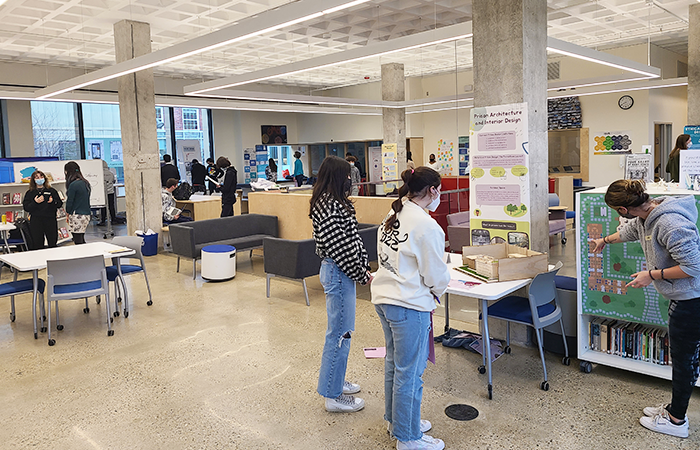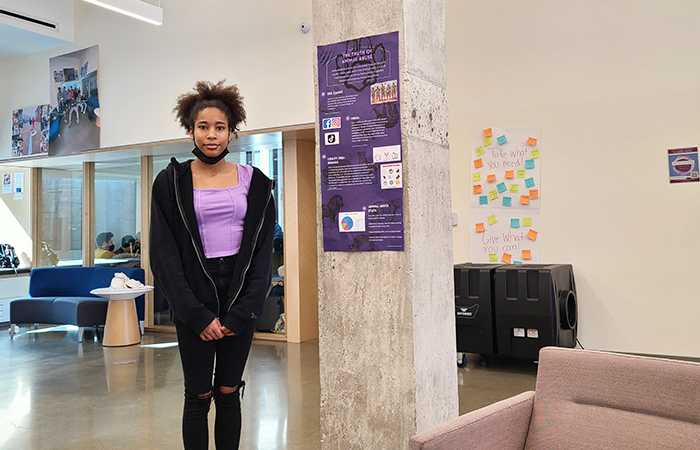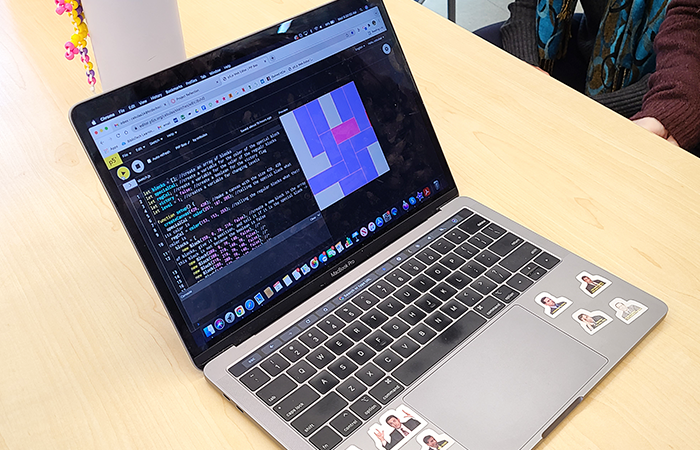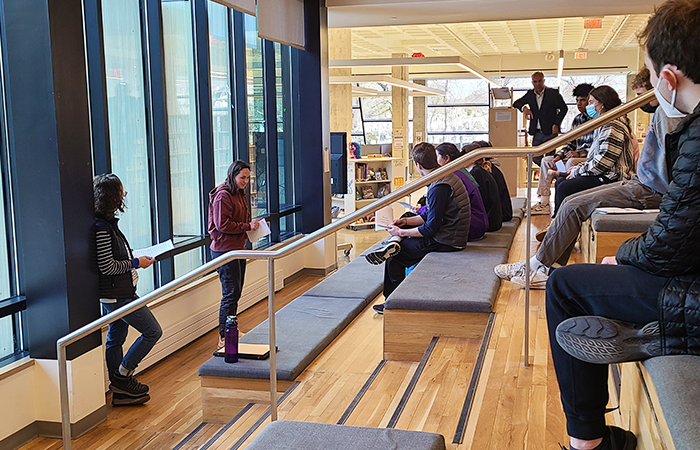With the winter term wrapping up, Upper School students were asked to demonstrate their knowledge of what they learned in various ways. From presentations to videos to coding, here are some ways Beaver students approached their final projects.
Class: Advanced History: Theories of Punishment (Honors)
Grade: 12
Teacher: Yolanda Wilcox González

From policing to health and safety in prisons to ethical prison design, students in the Theories of Punishment elective researched and examined issues related to the criminal justice system and worked to create solutions. Students consulted with experts, attended a virtual field trip to a medium-security prison, and interviewed a man who spent 35 years in prison who spoke about the collateral consequences of incarceration and the challenges faced when re-entering society. For their final projects, they made infographics, created presentations, wrote bills, made websites, created blueprints of their designs, wrote training manuals, and used virtual reality to highlight their selected topics while also proposing viable solutions. Students displayed their projects and shared what they learned with the community through presentations on the Research Level.
Class: English 9: Power and Perspectives
Grade: 9
Teacher: Billye Toussaint

Students in 9th-grade English spent the first half of the term exploring identity and perspectives in literature and then pivoted to exploring different ways of channeling their power and perspectives into action through an activism project. They identified an issue they care about, did research, and decided on an action to make change by creating a PSA, a letter to a leader, or a virtual storytelling project. Students shared their projects with the community by presenting on the Research Level.
Class: The Art of Code
Grades: 10, 11, 12
Teacher: Morgan Muschamp

In the Art of Code, students coded projects with real-world applications. The first half of the course was devoted to learning coding basics before transitioning to individual projects. Through their work, they learned new coding techniques as well as how to overcome seemingly insurmountable challenges when creating something new.
“A lesson that I can bring to other classes and to my life is to have more faith in myself and know that whatever the difficult task is, I will always be able to get it done if I put my mind to it,” a student shared in their reflection following the class.
Class: Contemporary Poetry
Grades: 11, 12
Teacher: Lydia Fash

Students in Contemporary Poetry read their original poetry, ranging from limerick to free verse. Throughout the term, students were asked what does “contemporary poetry” mean in this day and age. They were able to work through different forms of poetry, starting out with prompts, but then branching out to make their own stylistic choices. Some of the poems they wrote included taking a text, crossing out works, and making a poem out of it, as well as using the visual form of the poem to convey the message.
“I think it was great to hear people’s edited and revised versions of their poems, it gave me a little peek into how they write as well as what they write about,” said Gianna Filippou ’22. “I think that poetry, in general, can be very personal to people, and sharing it might be scary for some of them, however, I think that it is powerful when the poet reads their own poems because you can hear how they want it to be read and perceived. It also was an opportunity for me to truly see how talented people were.”
For their final project, the students created a chatbook of all their poems. They revised their work, formatted them, and printed them out to perform in front of the audience.
“It was definitely a unique experience reading my poetry out loud to my classmates and another class,” said Anna Levine ’22. “For me, it pushed me out of my comfort zone speaking in front of that number of people, especially since the process of drafting, in most cases, was a personal process.”
Senior Emma Davidson had a similar experience.
“I learned how to write poetry with different rules and forms and without restricting the variety of topics I could write about content-wise,” she said. “I was able to express my feelings and opinions through poetry in many different forms, which helped me gain confidence in my writing. I enjoyed the satisfaction after presenting my poetry because it was one of few opportunities I had that term to share my writing.”